5 Best Fitness Tips for Men to Prevent Bone Loss After 60
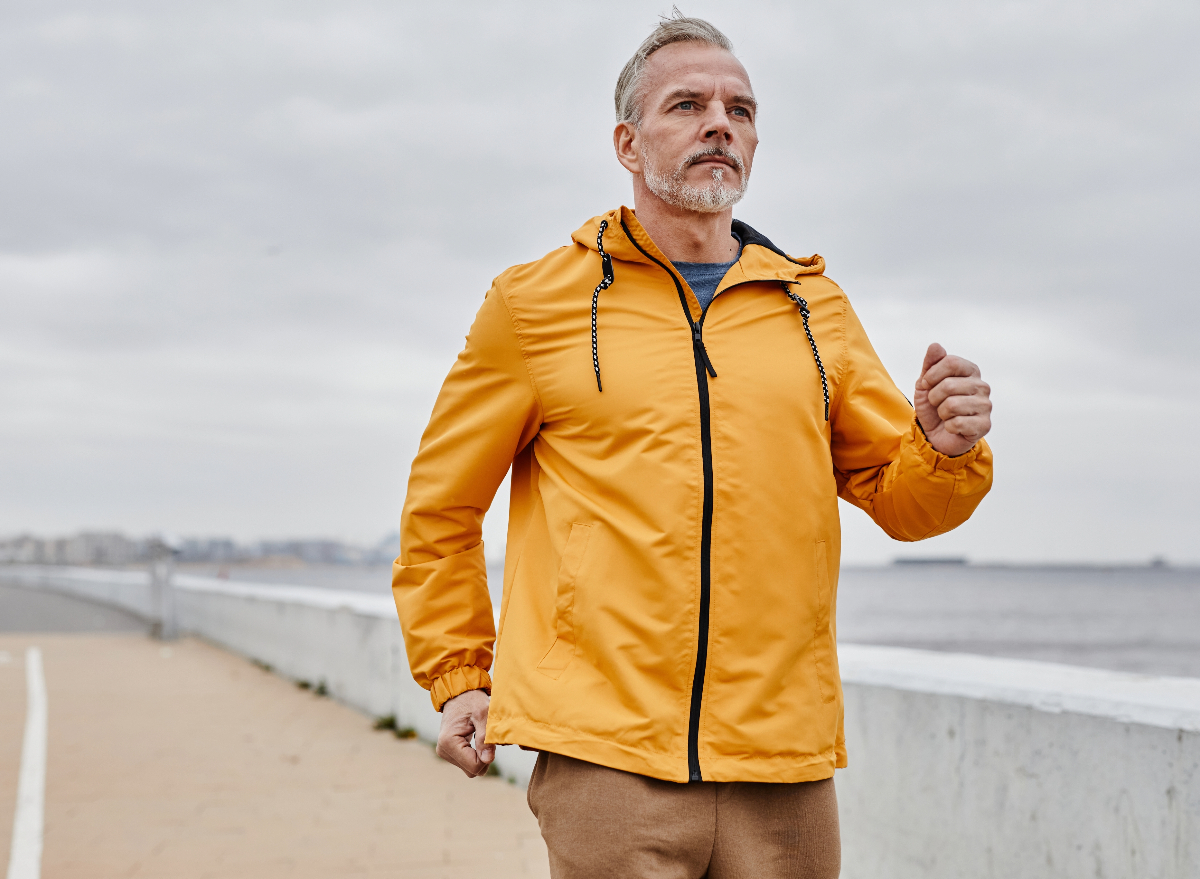
Growing older is a natural, beautiful part of life. You gain more wisdom, knowledge, and experiences under your belt. But as with anything, there are some aspects of aging, especially for men after 60, that are more difficult to accept. According to the National Institutes of Health, as you age, you start to lose a greater amount of bone than you form. The small holes in your bones become larger, and the solid exterior layer thins out. In layman's terms, your bones lose density, which can result in osteoporosis. But don't fret, because you can avoid bone loss with regular exercise, along with getting sufficient calcium and vitamin D.
"Regular exercise has a positive impact on your overall health, including bone density, muscle strength, and balance," says Ronny Garcia, CPT, Blink Fitness. "It also improves joint health by maintaining fluid circulation, which prevents stiffness. Exercise also promotes blood circulation contributing to overall health. Lastly, staying active prevents muscle atrophy and reduces the risks of falls."
Keep reading to learn all about Garcia's top fitness tips for men to prevent bone loss in their 60s. And when you're finished, don't miss the 5 Best Exercises for Men Over 50 To Live Longer.
Perform weight-bearing exercises.
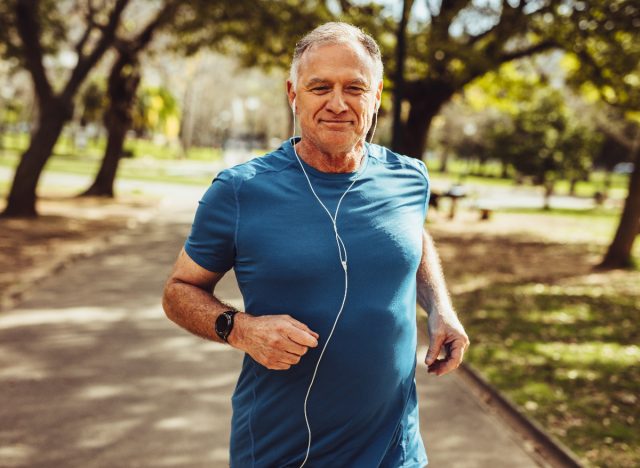
If you're unfamiliar with weight-bearing exercises, it's time to get familiar. According to Garcia, "Weight-bearing exercises are aerobic exercises done on your feet. Some good weight-bearing activities are walking, jogging, and hiking." Any of these physical activities activate bone-building cells, which can help strengthen your bones. Plus, research shows that walking is an incredibly beneficial type of exercise for those who are looking to preserve skeletal integrity, so get in your daily steps!
Train with weights.
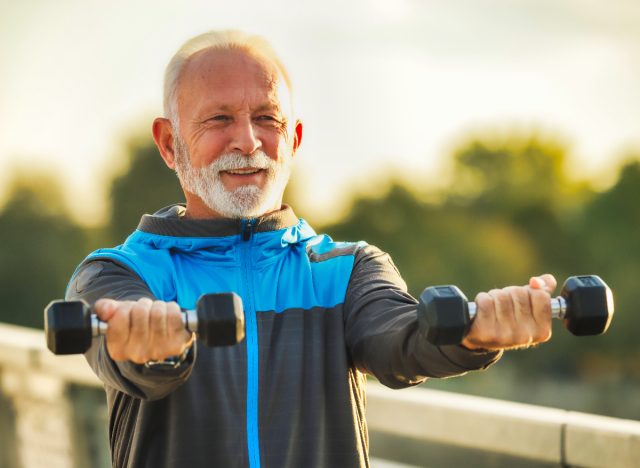
In order to prevent bone loss, strength training with weights is essential. This form of exercise requires you to lift weights or utilize resistance bands to help increase muscle bass, which supports bone health and strength, Garcia explains.
Research shows just how beneficial resistance exercises can be to aging individuals. According to a study published in Endocrinology And Metabolism, resistance training performed by itself or with additional interventions might be the most ideal method to boost bone mass and muscle in middle-aged men, postmenopausal women, and individuals in the older adult population.
Be mindful of your posture.
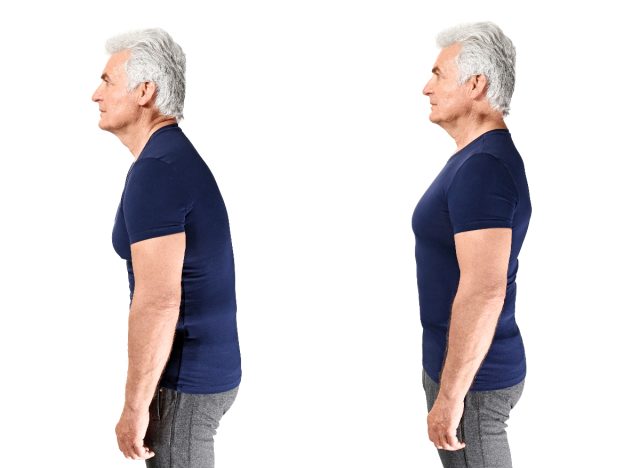
Posture is something most of us are guilty of not paying close attention to on a daily basis. But maintaining proper posture ensures that your body weight is distributed as it should be so you don't add any unnecessary stress to one particular area, Garcia says.
To ensure your body is properly aligned, the Bone Health & Osteoporosis Foundation recommends avoiding a slumped posture where your head is too far forward, hinging forward at your waist, twisting your spine so that you're straining yourself, and any activity that calls for you to reach pretty far (such as trying to grab something from a high shelf).
Work on your balance and stability.
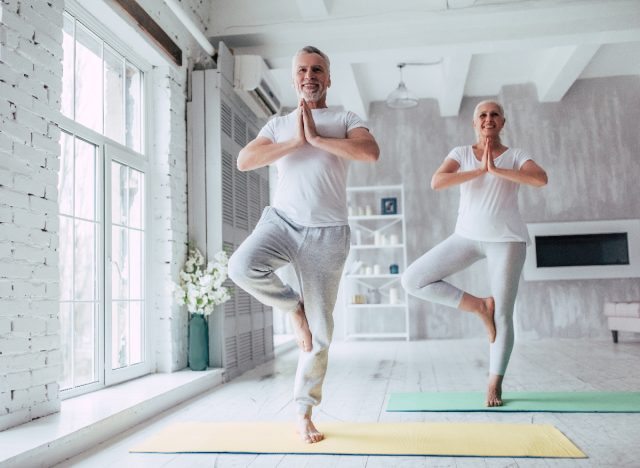
Working on your balance and stability can be fun! Exercises such as tai chi or yoga can better your coordination and decrease your chances of suffering from falls. Plus, science backs up just how great adding exercises like yoga to your daily routine can be. According to research, just 12 minutes of stretching it out with some yoga poses can reverse bone loss due to osteoporosis.
Progress slowly, and carve out time for rest and recovery.
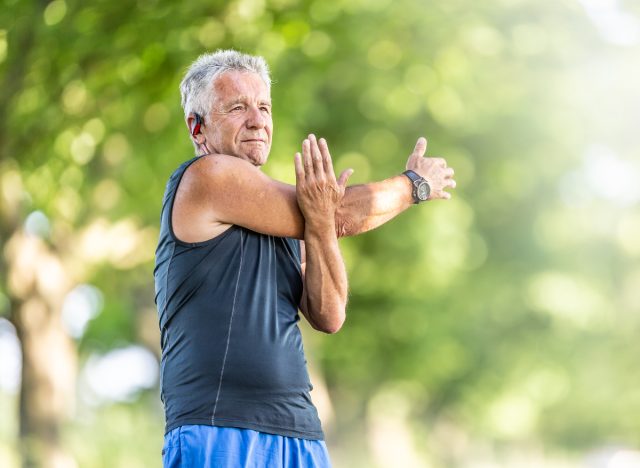
This may sound counterintuitive, but your time resting and recovering is just as important as lifting weights and sweating it out in the gym. In addition, take baby steps, and don't rush the process. Kicking things off slowly is the name of the game here. You can make things more intense and bump up the duration once you feel comfortable doing so in order to decrease your chances of getting injured.
- Source: https://newsinhealth.nih.gov/2015/01/osteoporosis-aging
- Source: https://www.ncbi.nlm.nih.gov/pmc/articles/PMC6279907/
- Source: https://www.bonehealthandosteoporosis.org/patients/treatment/exercisesafe-movement/proper-body-alignment/
- Source: https://www.ncbi.nlm.nih.gov/pmc/articles/PMC4851231/









